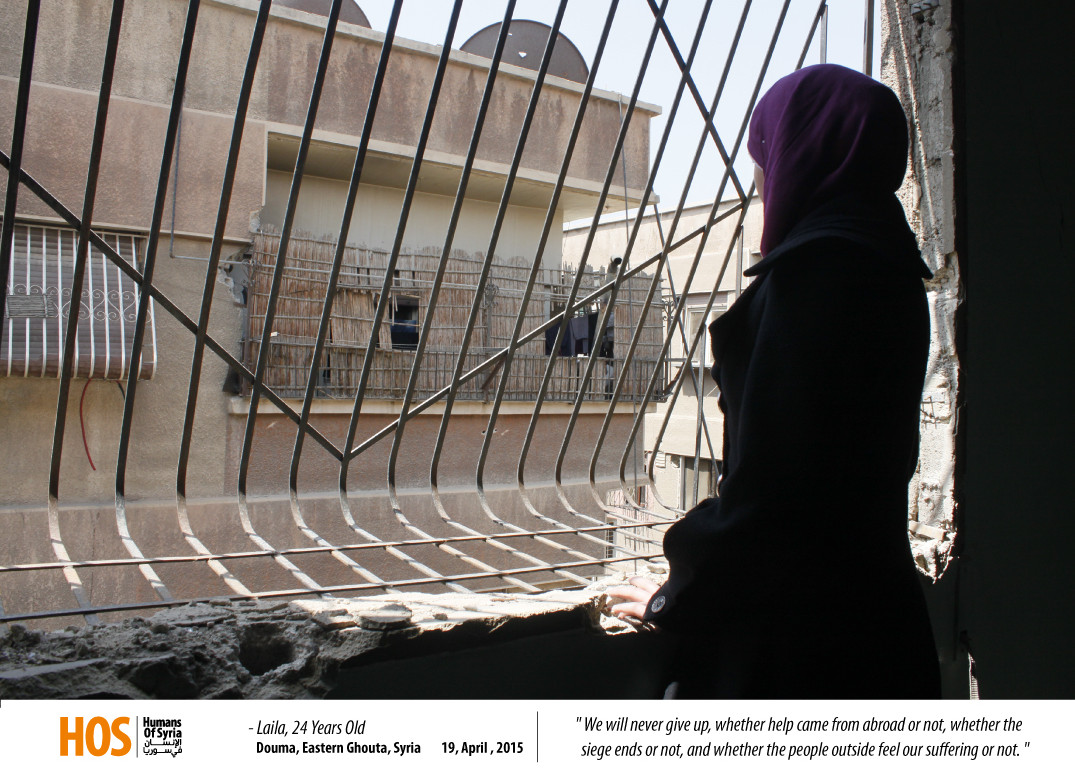Love always comes in ways that we never expect. For Layla, it came at a time when “all I wanted to do was to leave the house every day very early to avoid thinking about the suffering of my family, because every day is a race to get enough food and water.” It is strangest when it comes under siege in a brutal civil war, like what happened with Layla.

Layla was visiting her family in Eastern Ghouta when the Ghouta was besieged by the regime and no one was allowed to leave. The siege that became weeks, and then years, meant she couldn’t go back to Damascus to finish her last year in agricultural engineering. “I entered a period of depression and waiting,” she says,” I awaited any news to no avail.” She began to cope with her new predicament by taking up a teaching job at a “school in a remote and poor area of Ghouta that needed teachers.” She gained enough experience to be made the head of a local kindergarten. It was there that she met her future partner.
“I never thought about love at the time. I was still living in the hope that the siege will end, and I would be able to go back to university,” but he convinced her that despite the siege, “there are many things we can do together.”

“He had a great determination to stay whatever the circumstances, and a determination to defend his belief, and a great passion for his work.” Thus their love journey commences. “Meeting him was the best thing that happened to me at that time. I began to see everything more beautiful despite the difficulties. We lived the hard times together and we planned our life together little by little,” Layla reflects. Her new life took on new colors, and the siege didn’t seem so suffocating after all.
This stability, in a desert of tragedy, is what gets her through the day and helps her successfully manage the kindergarten of 250 children between 3 and 5 years-old. Layla also volunteers at a women’s center that helps women build experience and resilience in the tough conditions of siege in Ghouta.



